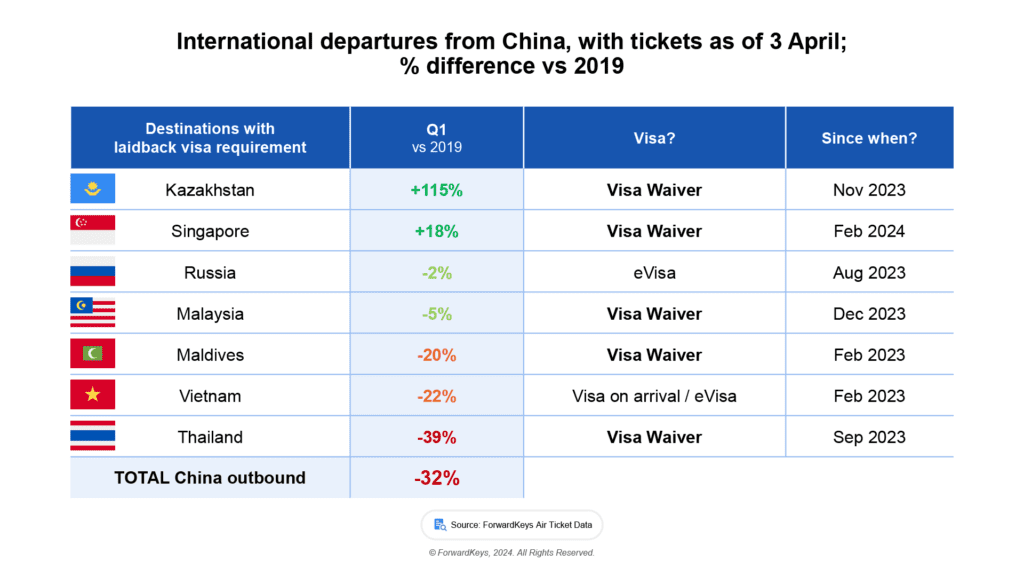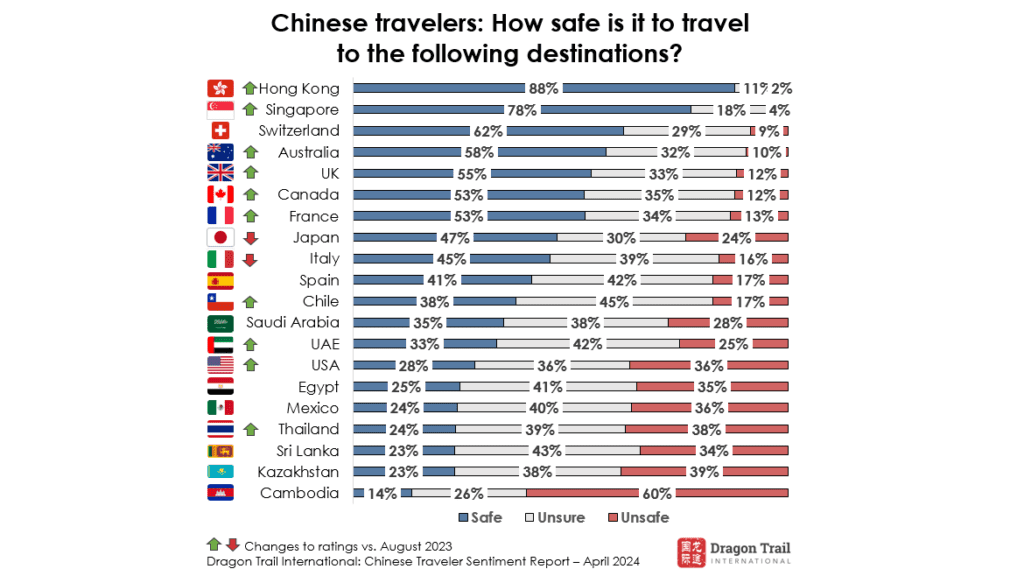


Think Iceland was an unexpected favorite for Chinese tourists, what would you say about Kazakhstan?
Kazakhstan and Iceland have emerged as favored destinations among Chinese tourists, while Thailand continues to struggle with perceptions of safety, according to Dragon Trail International’s latest Chinese consumer sentiment research.
The data was shared exclusively with Skift. On Wednesday, data firm ForwardKeys and Dragon Trail will be sharing these insights in a webinar.
Iceland first emerged as an unexpected favorite in Dragon Trail’s August 2023 survey, and it continues to remain in the top 10 most coveted outbound destinations. It is boosted by depictions of natural attractions, such as aurora borealis and volcanos on Chinese social media and reality TV.
Janice Meng, a market research analyst at Dragon Trail, emphasized the impact of popular reality shows. The TV show “Divas Hit The Road” helped familiarize Chinese tourists with Iceland, she said.
“Multimedia content has made the deepest impression on Chinese travelers, with video and live streaming emerging as the most eye-catching formats,” Meng added.
The easing of visa requirements has also been instrumental in attracting Chinese travelers. Following the relaxation of visa rules in 2023, travel from China to Kazakhstan skyrocketed 115%.

According to Nancy Dai, China market analyst at ForwardKeys, Kazakhstan’s standout performance is also driven by a 23% increase in seat capacity.
Affordability of travel packages and the allure of winter activities have also propelled Kazakhstan’s appeal among Chinese tourists, especially as winter destinations are becoming increasingly popular, said Dai.
However, despite the visa-free arrangement, Thailand’s performance in Chinese outbound travel has been lackluster due to safety concerns stemming from a shooting incident last year in October, said Dai.
Dragon Trail’s survey ranked Thailand 17th out of 20 outbound destinations for safety, with 38% of Chinese travelers considering it “unsafe” to visit.
“This suggests that while visa waivers are a major draw for Chinese travelers, other factors like safety concerns and flight connectivity also play a crucial role when they are choosing a holiday destination,” Dai added.
Speaking earlier to Skift, Boon Sian Chai, managing director and vice president of international markets at Trip.com Group, had mentioned that no matter how alluring outbound travel may be, safety and security information is most crucial for Chinese travelers.
However, Dragon Trail noted that Chinese perceptions of safety abroad are improving overall. More than a year post-China’s reopening, fears about international safety are diminishing, with the sense of safety increasing for 10 out of 12 destinations surveyed.
Hong Kong was voted the safest outbound destination, followed by Singapore, Switzerland, and Australia, reflecting a broader shift in Chinese travelers’ attitudes towards international destinations.


“It’s very promising to see that in the eyes of Chinese travelers, the world seems to be getting safer. Safety perceptions have improved for destinations around the world, and fears surrounding Covid-19 have dissipated,” said Sienna Parulis-Cook, Dragon Trail’s director of marketing and communications.
ForwardKeys also noted that Chinese outbound travel is gradually returning to pre-pandemic levels. In the first quarter of 2024, the number of issued flight tickets from China was 32% below the first quarter of 2019 levels, according to the travel firm.
As of April 3, bookings for the upcoming May holiday are only 13% down, compared to the same period in 2019, ForwardKeys said.
Dragon Trail noted that the intention to travel outbound has grown, with increased attention on long-haul destinations
Chinese travelers are also more likely to be planning intercontinental trips, with almost 40% saying they plan to or want to visit a region outside Asia in 2024. Europe emerged as the leading long-haul region with France topping the list, followed by Iceland.
Within the region South Korea was the most popular country for 2024 outbound travel plans, followed by traditional hotspots Thailand and Japan, and newly visa-free Singapore.